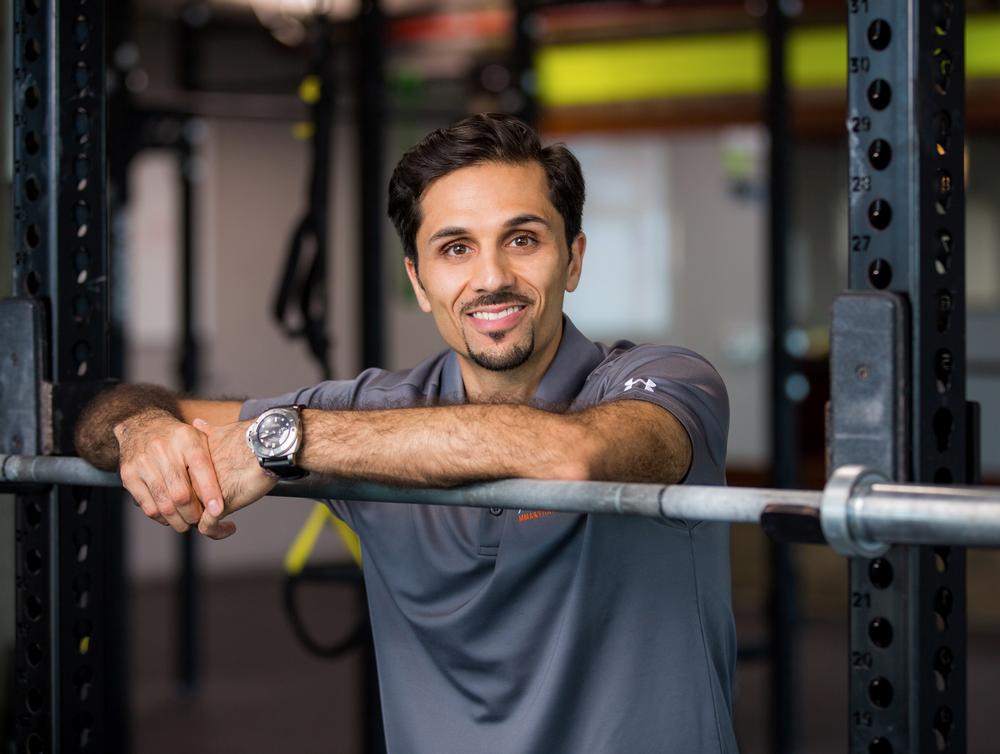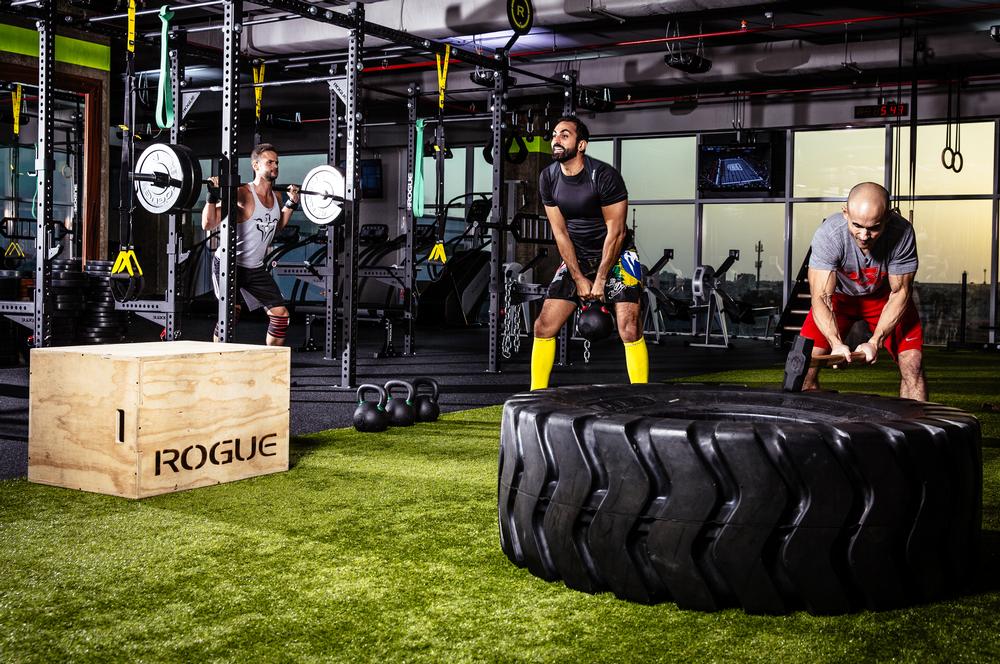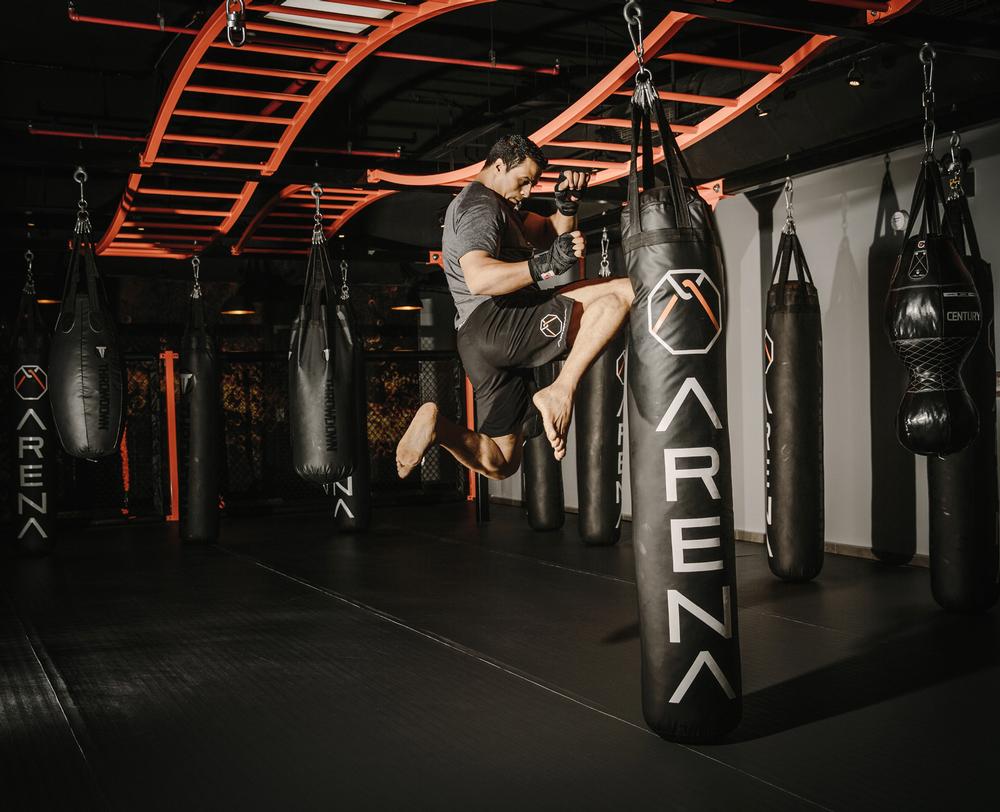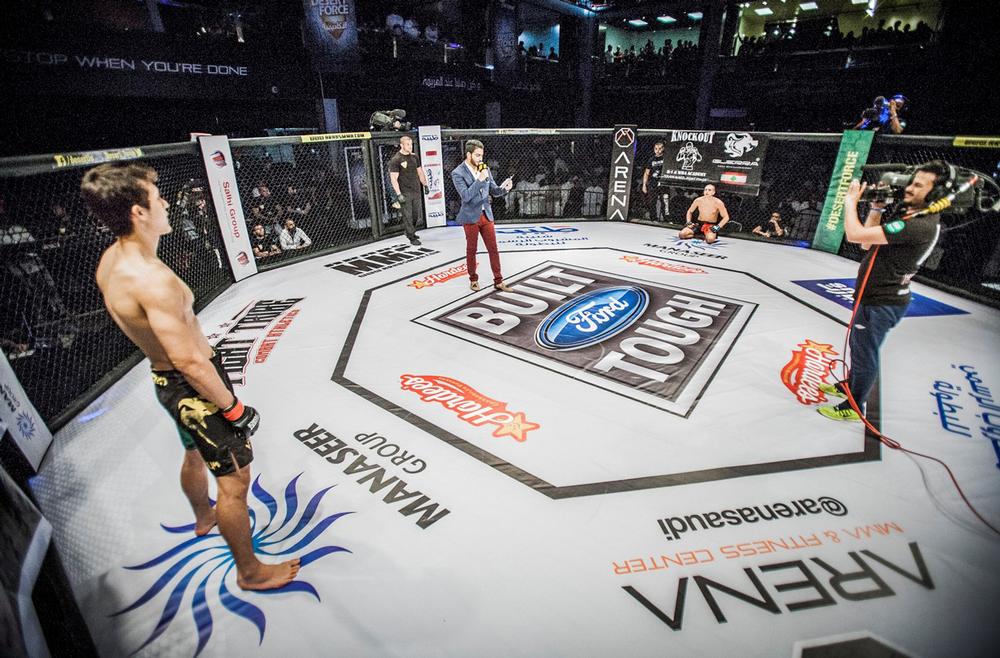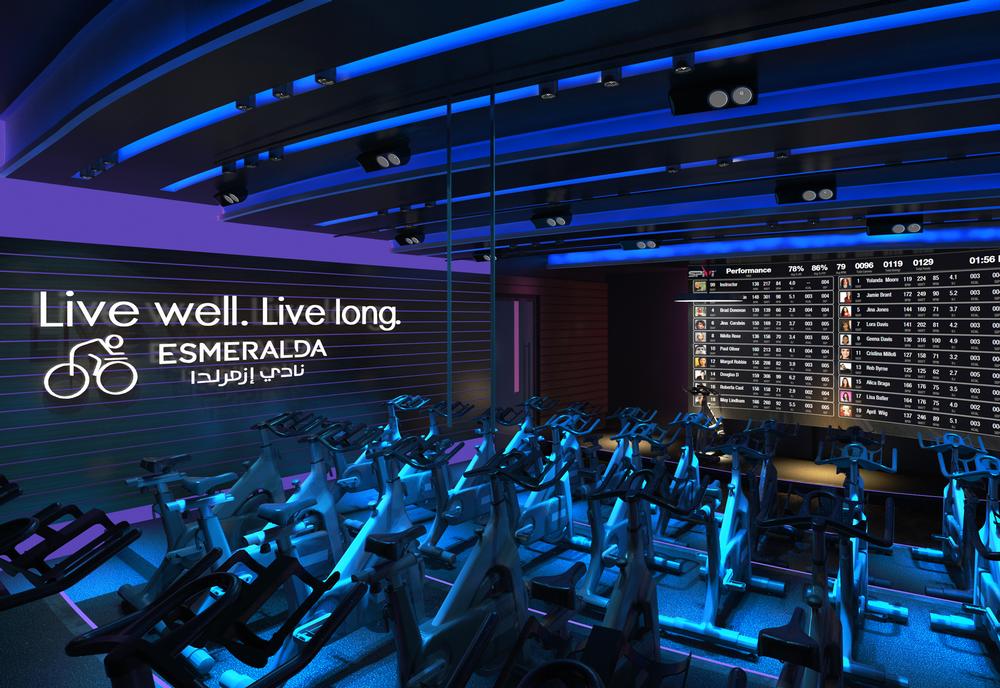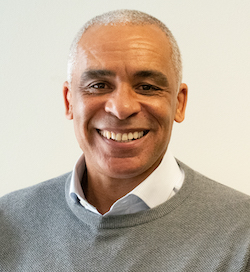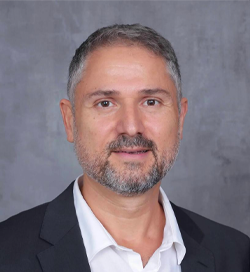The Saudi government has big ambitions to increase the number of people being active,” says Mohammed Fayez, co-founder and chief executive of Saudi-based fitness operation Arena Group. “We believe we can help them.”
He continues: “At the moment, only 13 per cent of the population is active for 20–30 minutes a week. The government wants to grow this to 40 per cent by 2030 and is putting significant investment into wellbeing initiatives [See ‘Transforming a Nation’, p48.].
“A key focus will be mass participation: building facilities and outdoor parks, running fun events and creating social media campaigns to drive awareness of what’s going on. We sponsored the first ever Spartan Races in Saudi, for example, which took place in December and January. There will also be public education initiatives around nutrition, obesity and diabetes.
“For the first time in Saudi Arabia, the door is also being opened for women’s fitness. Previously you had to make the most of loopholes in the system, or you had to go through the Ministry of Health to open up physiotherapy centres, but that will no longer be the case. It’s a huge opportunity to tap into a whole new market.
“The government is also investing in elite sport, going through the sporting federations and the Olympic Committee. The goal is to get 100 medals in the 2022 Asian Games. It’s probably over-ambitious, but you have to reach for the stars to land on the moon.”
Two become one
So how does Fayez believe his Arena team can assist the Saudi government in achieving its goals?
“We work across all the segments of the population the government is trying to reach: new exercisers, women, elite sportspeople – and children too. We believe kids are an incredibly important audience,” he explains.
These diverse audiences all have their place within the Arena Group portfolio, now the combined force of two separate companies: Arena and 22. Founded independently around five years ago, each opened their first club in July 2014. Initially competitors, the companies then merged in August 2015. “Our shareholders encouraged us to join forces so we could make a bigger difference in the Saudi market,” explains Fayez.
In spite of the merger, the two operations continue to run independently under the Arena Group umbrella, with 22 operating one site and Arena currently operating two.
Introducing 22
22 is a CrossFit-style boutique in Jeddah, charging US$160 a month, with 850sq m dedicated exclusively to functional training. “The 22 brand comes from 22 minutes – the idea that the main part of your workout can be done in 22 minutes, with a bit of warming up and cooling down on either side,” says Fayez, who founded 22 prior to becoming Arena Group CEO.
“Saudi has a limited number of venues where people can socialise, so a lot of younger people have gym memberships just to catch up with their friends. They spend more time at the club than is the norm in other markets, but they’re taking part in non-fitness activities such as playing billiards and lounging in the pool, sauna and spa pool.
“In creating 22, we wanted to cater for people who were serious about their training – people who wanted to get in, work out and leave. Rather than offering a full-service, ‘open buffet’ style of gym, we therefore focused on specialised training of functional movement.”
He continues: “We also launched 22 Women in June 2016, an 850sq m facility at the opposite end of the original 22 building. It’s been incredibly well received – probably even better than the male version. Many women have been educated overseas and they’ve been waiting for something like 22 Women to open.”
Enter the Arena
Meanwhile, Arena’s first site in Jeddah – a vast 8,000sq m space – was founded with martial arts at its heart: of the 120 classes offered each week, 40 per cent are in a specific martial arts discipline, with the remainder a combination of general fitness fused with functional-based MMA conditioning. However, as Hussein Madi – general manager of Arena prior to the merger – explains, it isn’t set up to appeal only to the already fit: “What we offer is MMA, but it isn’t extreme. We focus on fun and community, with a very consultative approach.”
Priced at US$180 a month, and open to men only, Arena focuses on quality as a key USP: world champion instructors have been brought in from around the world to head up the delivery of their respective disciplines, from Brazilian jiu jitsu to Muay Thai, wrestling to boxing. Partnerships have also been set up with world-leading brands such as American Top Team in the US. “We wanted to penetrate the market without competing with market leader Fitness Time, and we wanted to ensure anyone else trying to come into our space would find it very hard to compete with us,” explains Madi.
This inaugural club also makes the most of its size by doubling as an events venue – an event can be held one night, hosting 1,000 spectators, and by 7.00am the next morning the club is back to its usual gym format, with the MMA cage in the middle.
In December 2014, six months after the club opened, Arena hosted its first event in partnership with MMA events organiser Desert Force. These were the first ever fights held in Saudi, and the most successful event ever for Desert Force, with 20 million viewers on live TV – 60 per cent of which were in Saudi, where MMA is a national passion.
Teaching values
Going back to Fayez’s comment about wanting to focus on children, Arena has also launched a kids’ concept: Arena Heroes. This was originally tested at the main Arena club and has proved hugely popular, so the concept will now be rolled out in standalone venues: one is due to open imminently in the space between 22 and 22 Women, so the whole family can work out at the same time – including younger girls as well as boys.
“The kids’ market is where the future is,” says Arena COO Anas Orfali, “and there’s really nothing in the Saudi market like Arena Heroes: not only world-class trainers, but also a focus on social skills. We don’t just get the kids fit and teach them an art – we teach them respect for the family, respect for your teacher… We’re building values and people are loving it. We have hundreds of people on our waiting lists.”
“We sent some of the kids to the jiu jitsu world championships and, after just one-and-a-half years of training, we came back with 23 medals, most of them golds,” adds Madi. “That might seem like quite a small story, but we’ve approached the Olympic Committee. If the government wants 100 medals in 2022… well, this is what we’ve been able to do with the kids at Arena Heroes. If we really turn our focus on this, what might we be able to achieve for the country?”
Launching satellites
Initiatives such as this have helped Arena develop a strong brand equity in Saudi Arabia, to the point that the management team has – at least for now – put the roll-out of both 22 and 22 Women on a back-burner to focus on expanding Arena and Arena Heroes.
“We do have plans to grow 22, including a new low-cost concept: 22 Box Fit,” says Fayez. “It will be a pure CrossFit box, and we have a couple of locations in mind.
“But for now we want to focus on Arena. Rolling out four or five brands simultaneously meant we weren’t managing our resources effectively. In addition, the boutique market really isn’t developed in Saudi yet, and we don’t want to burn the 22 card by rolling it out before its time. We’ll wait until the market is ready before we grow that brand.”
Meanwhile Arena’s second club, in the capital city of Riyadh, opened on 1 October 2016. Smaller than the original at 2,400sq m, it also has a slightly different focus. MMA is still offered, but there’s more functional training alongside freeweights, cardio and a CrossFit area.
“We have another site under construction in Riyadh,” adds Orfali. “It’s about 1,700sq m, located in a basement, with a big focus on functional training and weight lifting – in fact, we’ll be hosting international weightlifting and powerlifting competitions there. Above it, on the ground floor, we’re converting 400sq m of office space into an Arena Heroes.”
“Riyadh is a big city with a lot of demand for fitness. Rather than opening one mega facility to serve the whole city, we thought it better to build several satellite facilities, each bringing in different elements of the overall Arena offering,” says Fayez.
A piece of KAEC
But the team has other interests besides its clubs, including corporate wellness. “We have certified nutritionists, trainers and physical therapists, as well as a lady to work with female employees,” says Orfali. “We can go in and embed a healthy lifestyle culture in a company, running the activities and programmes, overseeing the communication. Once we’ve created that culture, we’re also able to offer deals across the Arena Group for men, women and kids.”
The group has also been approached by EMAAR – the largest real estate developer in the region, responsible for building the Burj Khalifa in Dubai – to consult on the leisure provision at the £67bn King Abdullah Economic City, due to be completed by 2035 but with as many as 50,000 people set to move in by 2020.
Madi explains: “We beat off some big names, including American companies and big global brands, to be invited to design the leisure destination in that city, which is an area of 50,000sq m. It will have six swimming pools, six tennis courts, a male gym, a female gym, indoor courts, day care, lots of studios… It will be a huge leisure destination.”
A global ambition
So with all the brands in its portfolio, as well as a number of external interests, what are the Arena Group’s ambitions moving forward?
“Since the merger, we’ve focused on developing fewer sites in the short term with a view to building strong foundations for future growth,” says Fayez. “By mid-2017 we’ll have nine branches in four locations, and by 2020 that will rise to 20 branches.
“We’d then like to expand beyond Saudi, into the GCC and beyond – Dubai and Egypt are on our radar, as well as possibly Turkey. But ultimately we want to reach into the US market and then into Europe.”
“Ultimately, we want to raise awareness of what real fitness is about,” concludes Orfali. “It isn’t about aesthetics. It’s about improving your lifestyle so you spend better quality time with your family, so you’re more able in all you do, so you’re less affected by illness.
“Admittedly the bar is set pretty low in Saudi, which makes it a lot easier for us to achieve results – but we are achieving results, and that’s making all the hard work worthwhile.” ?








